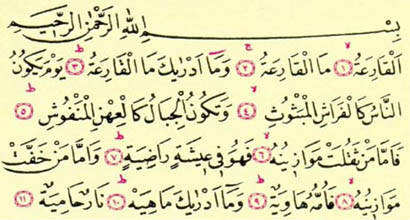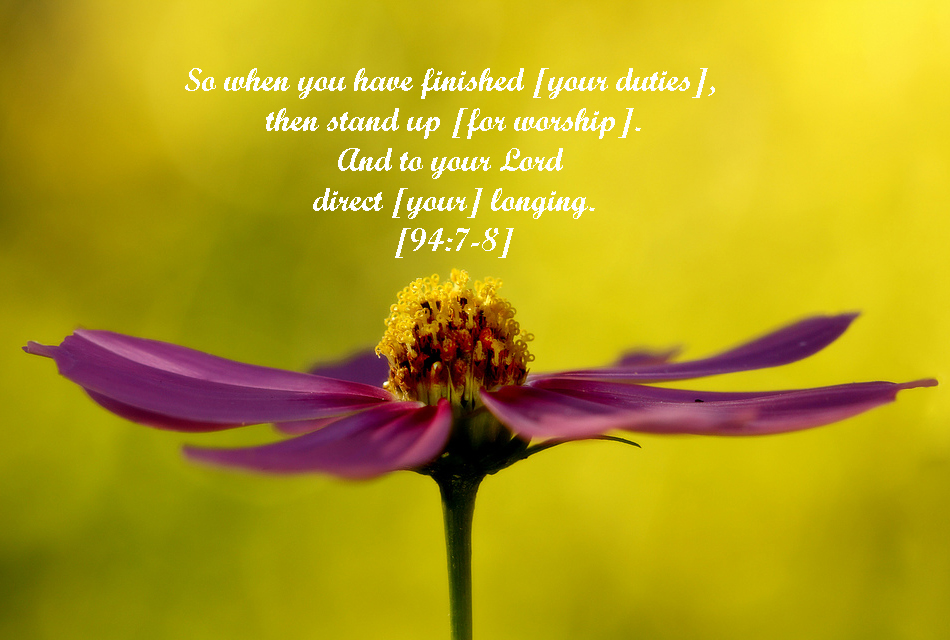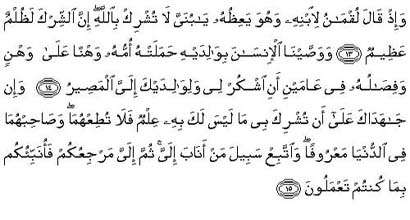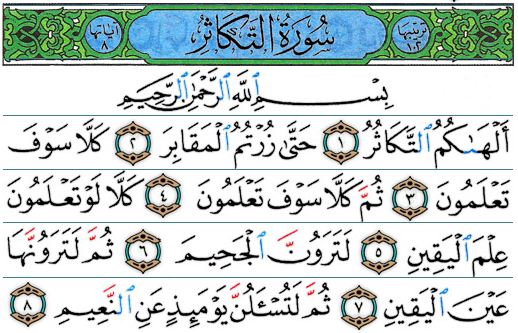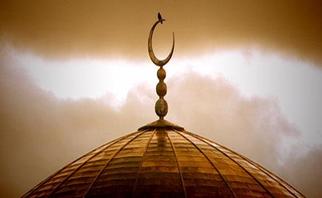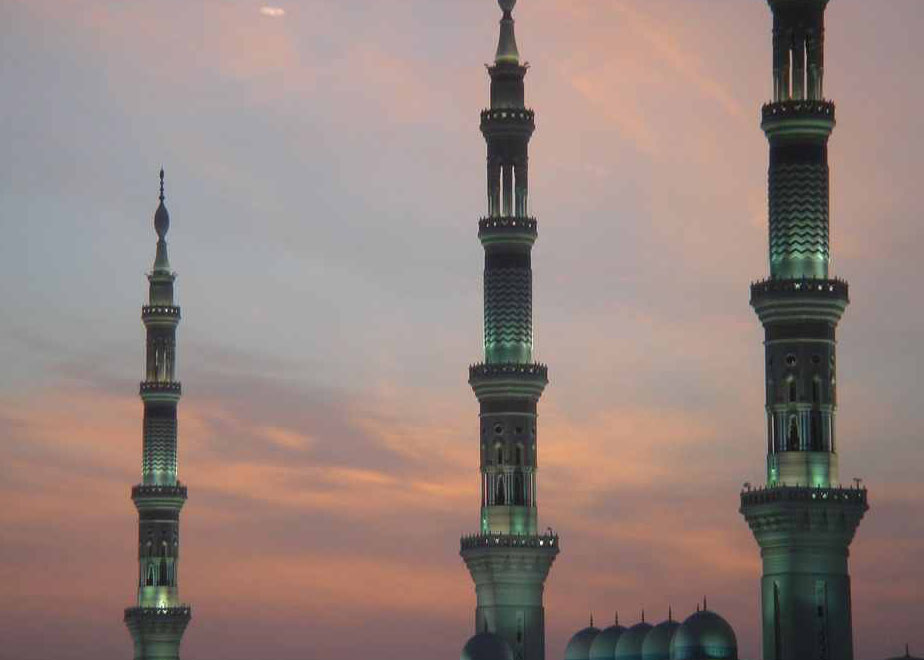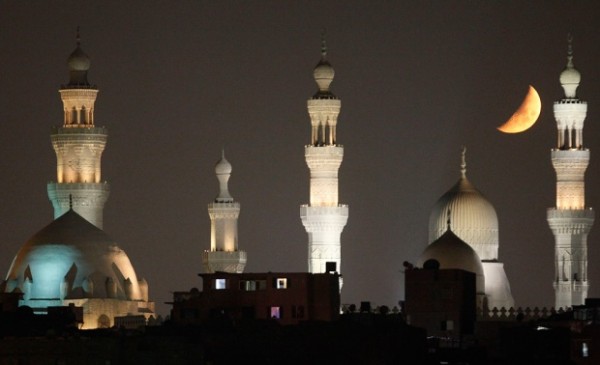Truth Seeker
-
I thought the word “Muslim” was the term for an ethnic group, and I was only concerned about the Iraq war when innocent people were raped in that Abu Ghraib prison scandal.
-
Then it was Ramadan, something that I witnessed many times before in the Gulf, but something I just let it pass me by just as most westerners do. Just an annoyance, an inability to get a cup of tea during the day. In Turkey, I felt something different. I felt some sense of something else. Watch how this atheist converted to Islam.
-
No other religion professed by a large community have I found so comprehensible and encouraging. There seems no better way towards tranquility and contentment in life, no greater promise for the future after death.
-
I started to ask myself some questions. Why am I here? What is the purpose of my life? I investigated Christianity and I started to realize that there is a lot of interpretations of Christianity. I also investigated Hinduism, Judaism, Buddhism.
-
This is an autobiography of an Indian atheist woman who turned to Islam after a very long journey that witnessed so many various stages. Each stage led to the next by Allah’s Grace and Mercy. Join us to read the first part of this four-part interesting story. In this part we will see how she moved from Atheism in a Hindu environment to Deism and how she became a wife to a devout Christian…
-
Abdulrahman, a British atheist converts to Islam. Watch the video to know how he found the truth of Islam.
The Faith
-
Background Within a century after the death of Prophet Muhammad (peace be upon him) the Muslims not only conquered new lands, but also became scientific innovators with originality and productivity. They hit the source ball of knowledge over the fence to Europe. By the ninth century, Islamic medical practice had [...]
-
Islam is the religion of all times and places. It is a perfect system of temporal values. By practicing its laws Muslims all over the world not only attain spirituality but the pinnacle of all other glories and gain the wealth of health. There is a great inter-relationship between modern [...]
-
Dedication This paper is dedicated to those who contributed to the well being of mankind and have done their best to make our journey on this planet more pleasant; to all of them, irrespective of their race, religion or country of origin. Introduction Medicine, as it stands today, did not [...]
-
Medicine as an Art Medicine was defined by Muslim physicians such as Al-Razi (841)-926 A.D.) and Ibn Sina (Avicenna, 980-1036 A.D.) as the art concerned with the preservation of good health, combating of disease, and restoration of health to the sick. For several centuries, the world has witnessed and benefited [...]
New Muslims
-
Please allow me to briefly present to you my book “MUHAMMAD, THE PROPHET OF MERCY” (255 pages), a planned (five years of work) response to the offensive cartoons. It mainly addresses readers who are misinformed or know nothing about Prophet Muhammad (peace and blessings of Allah be upon him) with [...]
-
A Muslim firmly believes that divinely revealed books were actually revealed by the Compassionate Allah to His prophets to guide mankind. The Qur'an is not the only spoken word of God, but God also spoke to prophets before Prophet Muhammad. The central message of all scriptures was to worship God alone.
-
The whole concept of wealth is considered in Islam as a gift from Allah. Allah, who provided wealth to the person, made a portion of it for the poor. So, the poor have a right over one’s wealth. Zakah reminds Muslims that everything they have belongs to their Lord. People are given their wealth as a trust from Him, and Zakah is intended to free Muslims from the love of money.
-
What did the Prophet mean when he said ‘the religion is ease’? Where is such easiness implemented? How? Is it about the principals of the practice?
-
The whole concept of wealth is considered in Islam as a gift from Allah. Allah, who provided wealth to the person, made a portion of it for the poor. So, the poor have a right over one’s wealth. Zakah reminds Muslims that everything they have belongs to their Lord. People are given their wealth as a trust from Him, and Zakah is intended to free Muslims from the love of money.
-
The West’s Biggest Misconception About Islam
Learn the Qur'an
-
What are the lessons in Surat Al-Qari`ah that reflect the eloquence of the Glorious Qur`an?
-
How do the scholars of tafseer differ on the name of this chapter and what does the Arabic word nashrah mean?
-
What are the types of showing off? Why does Allah describe the people that you should follow as those who repent to Him?
-
What are the lessons in Surat Al-Qari`ah that reflect the eloquence of the Glorious Qur`an?
-
Word by word Imam Suhaib explains the meaning of each verse, showing the significance behind God’s use of certain….
-
Watch Imam Suhaib Webb's reflections on Surat At-Takathur.
Prayer In Islam
-
As the sound of the Adhan is heard throughout the world, Muslims stop and turn to the Lord, thanking Him, remembering Him, bowing down to him in prayer.
-
As the sound of the Adhan is heard throughout the world, Muslims stop and turn to the Lord, thanking Him, remembering Him, bowing down to him in prayer.
-
So, what do you know about the sound heard five times a day around the world; how was it introduced into Islam and who was the first to suggest the call?
-
What should you do if you make a mistake during the prayer or if you are not certain of how many rak`ahs you have performed? Should you repeat the prayer or should you make up the missed part by performing sujud al-sahw (two prostrations of forgetfulness)? Should sujud al-sahw be done before or after ending the prayer? Watch this final episode of the Prophet's prayer by Dr. Muhammad Salah to know the answer to these questions.
-
How did Arab Idolaters use to pray? How did Prophet Abraham use to pray
-
What do you know about the state of khushu` in prayer? How could you taste the sweetness of prayer?



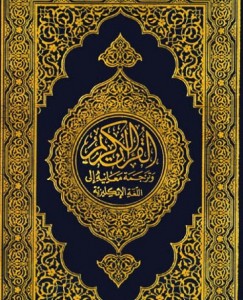
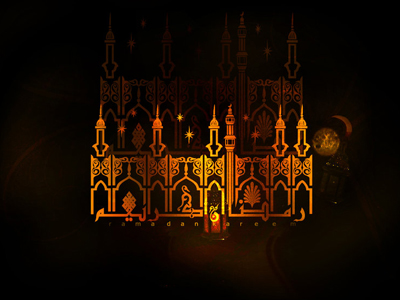



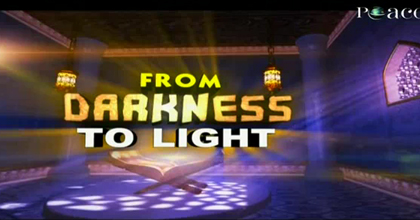
![Background Within a century after the death of Prophet Muhammad (peace be upon him) the Muslims not only conquered new lands, but also became scientific innovators with originality and productivity. They hit the source ball of knowledge over the fence to Europe. By the ninth century, Islamic medical practice had [...] Background Within a century after the death of Prophet Muhammad (peace be upon him) the Muslims not only conquered new lands, but also became scientific innovators with originality and productivity. They hit the source ball of knowledge over the fence to Europe. By the ninth century, Islamic medical practice had [...]](http://www.the-faith.com/wp-content/uploads/2011/04/dvsdv.jpg)
![Islam is the religion of all times and places. It is a perfect system of temporal values. By practicing its laws Muslims all over the world not only attain spirituality but the pinnacle of all other glories and gain the wealth of health. There is a great inter-relationship between modern [...] Islam is the religion of all times and places. It is a perfect system of temporal values. By practicing its laws Muslims all over the world not only attain spirituality but the pinnacle of all other glories and gain the wealth of health. There is a great inter-relationship between modern [...]](http://www.the-faith.com/wp-content/uploads/2011/01/modern-medicine.jpg)
![Dedication This paper is dedicated to those who contributed to the well being of mankind and have done their best to make our journey on this planet more pleasant; to all of them, irrespective of their race, religion or country of origin. Introduction Medicine, as it stands today, did not [...] Dedication This paper is dedicated to those who contributed to the well being of mankind and have done their best to make our journey on this planet more pleasant; to all of them, irrespective of their race, religion or country of origin. Introduction Medicine, as it stands today, did not [...]](http://www.the-faith.com/wp-content/uploads/2011/04/IbnSina.jpg)
![Medicine as an Art Medicine was defined by Muslim physicians such as Al-Razi (841)-926 A.D.) and Ibn Sina (Avicenna, 980-1036 A.D.) as the art concerned with the preservation of good health, combating of disease, and restoration of health to the sick. For several centuries, the world has witnessed and benefited [...] Medicine as an Art Medicine was defined by Muslim physicians such as Al-Razi (841)-926 A.D.) and Ibn Sina (Avicenna, 980-1036 A.D.) as the art concerned with the preservation of good health, combating of disease, and restoration of health to the sick. For several centuries, the world has witnessed and benefited [...]](http://www.the-faith.com/wp-content/uploads/2011/04/ethics.10985.jpg)
![Please allow me to briefly present to you my book “MUHAMMAD, THE PROPHET OF MERCY” (255 pages), a planned (five years of work) response to the offensive cartoons. It mainly addresses readers who are misinformed or know nothing about Prophet Muhammad (peace and blessings of Allah be upon him) with [...] Please allow me to briefly present to you my book “MUHAMMAD, THE PROPHET OF MERCY” (255 pages), a planned (five years of work) response to the offensive cartoons. It mainly addresses readers who are misinformed or know nothing about Prophet Muhammad (peace and blessings of Allah be upon him) with [...]](http://www.new-muslims.info/wp-content/uploads/2012/09/Muhammad-the-Prophet-of-Mercy.jpg)




